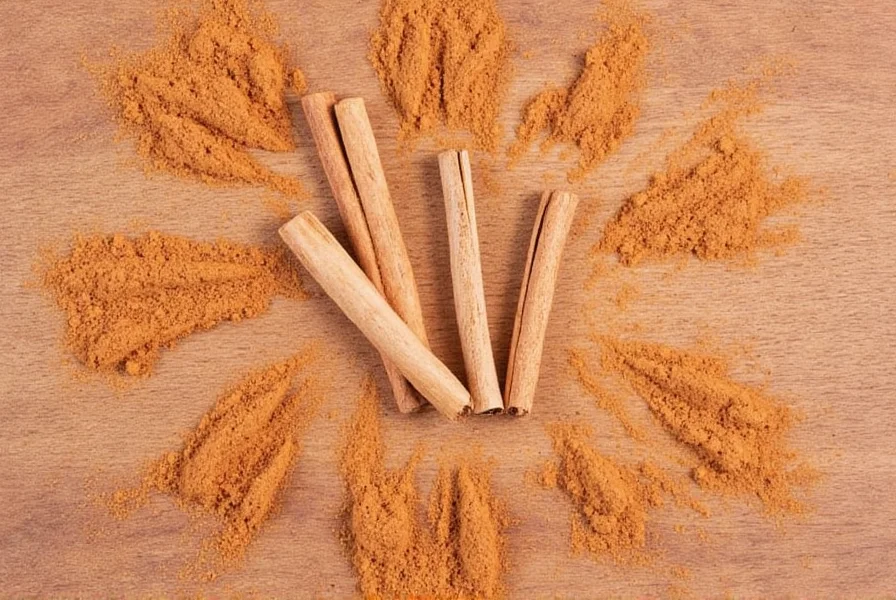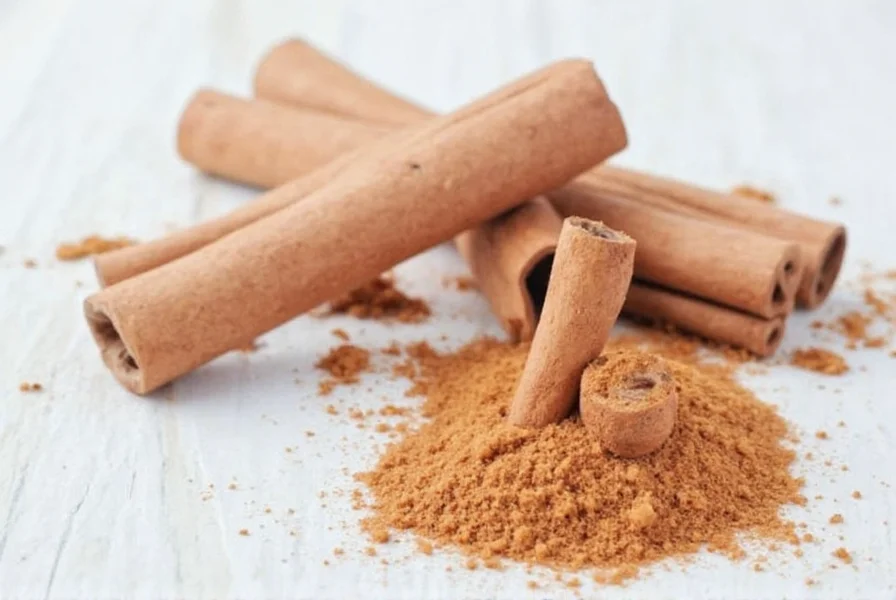Many people wonder does cinnamon help you lose weight after encountering popular health blogs or social media posts claiming miraculous results. The reality is more nuanced than these viral claims suggest. Let's examine what science actually says about cinnamon's role in weight management.
Understanding Cinnamon's Potential Metabolic Effects
Cinnamon contains bioactive compounds like cinnamaldehyde that may influence metabolic processes. Research published in the Journal of the Academy of Nutrition and Dietetics indicates cinnamon might improve insulin sensitivity, potentially helping regulate blood sugar levels after meals. This effect could theoretically reduce fat storage associated with blood sugar spikes.
However, it's crucial to understand that can cinnamon really help with weight loss depends on context. The metabolic effects observed in laboratory settings don't necessarily translate to meaningful weight reduction in real-world scenarios. Most human studies showing benefits used high concentrations not achievable through normal dietary consumption.

Reviewing the Scientific Evidence
A comprehensive analysis of human clinical trials reveals limited evidence connecting cinnamon consumption to significant weight loss. Consider these findings:
| Study Type | Key Findings | Limitations |
|---|---|---|
| Human Clinical Trials (2013-2022) | No significant weight loss observed beyond placebo effect | Small sample sizes; short duration (4-12 weeks) |
| Animal Studies | Some weight reduction in rodents on high-dose cinnamon | Doses equivalent to 1-2 tablespoons daily for humans—not practical or safe long-term |
| Meta-Analysis (2021) | Minor improvement in metabolic markers, no meaningful weight change | Focused on diabetic patients, not general weight loss |
The American Heart Association states: "While spices like cinnamon may offer modest metabolic benefits, they should not be considered weight loss solutions. Sustainable weight management requires comprehensive lifestyle changes."
How Cinnamon Might Support Weight Management (Realistically)
Though does cinnamon help you lose weight naturally remains questionable, it might play a supportive role when used appropriately:
- Blood sugar regulation - May reduce post-meal glucose spikes, potentially decreasing fat storage
- Dietary substitution - Replacing sugar with cinnamon in recipes reduces calorie intake
- Anti-inflammatory properties - Chronic inflammation can hinder weight loss efforts
- Metabolic support - May enhance insulin sensitivity in prediabetic individuals
These effects are subtle and work best as part of an overall healthy eating pattern, not as standalone solutions. The National Institutes of Health emphasizes that no single food causes weight loss—it's about total calorie balance and dietary patterns.
Practical Usage Guidelines
If you're considering how to use cinnamon for weight loss effectively, follow these evidence-based recommendations:
- Choose Ceylon over Cassia - Ceylon cinnamon contains less coumarin, a compound potentially harmful in large amounts
- Moderate consumption - 1-2 teaspoons (2-4 grams) daily is considered safe for most adults
- Combine with healthy fats - Pair with nuts or yogurt to enhance absorption of beneficial compounds
- Avoid supplements - Concentrated cinnamon supplements lack safety data for long-term use
- Manage expectations - View cinnamon as a flavor enhancer, not a weight loss tool

Debunking Common Cinnamon Weight Loss Myths
Numerous misconceptions circulate about does cinnamon and honey help lose weight or other cinnamon combinations. Let's clarify:
- Myth: Cinnamon boosts metabolism significantly
Reality: Any metabolic effect is minimal and unlikely to cause measurable weight loss - Myth: Cinnamon targets belly fat
Reality: No food selectively burns fat from specific body areas - Myth: Cinnamon suppresses appetite
Reality: Limited evidence shows minor effects on satiety, not significant enough for weight control - Myth: Cinnamon detoxes the body
Reality: The body naturally detoxifies through liver and kidneys; no evidence cinnamon enhances this
Safety Considerations
While generally safe as a spice, cinnamon requires caution in certain situations:
- Cassia cinnamon contains coumarin, which may cause liver damage in sensitive individuals at high doses
- People taking diabetes medications should consult doctors, as cinnamon may enhance medication effects
- Pregnant women should avoid medicinal doses (beyond normal culinary use)
- Those with mouth sores may experience irritation from direct cinnamon contact
Realistic Weight Management Strategies
Instead of focusing on does cinnamon help you lose weight quickly, consider evidence-based approaches:
- Maintain consistent calorie deficit through portion control
- Incorporate regular strength training to preserve muscle mass
- Prioritize protein and fiber intake for satiety
- Get adequate sleep and manage stress levels
- Consider working with registered dietitians for personalized plans
Cinnamon can be a flavorful addition to healthy recipes, but it shouldn't replace proven weight management strategies. The Centers for Disease Control emphasizes that sustainable weight loss typically occurs at 1-2 pounds per week through consistent lifestyle changes.











 浙公网安备
33010002000092号
浙公网安备
33010002000092号 浙B2-20120091-4
浙B2-20120091-4